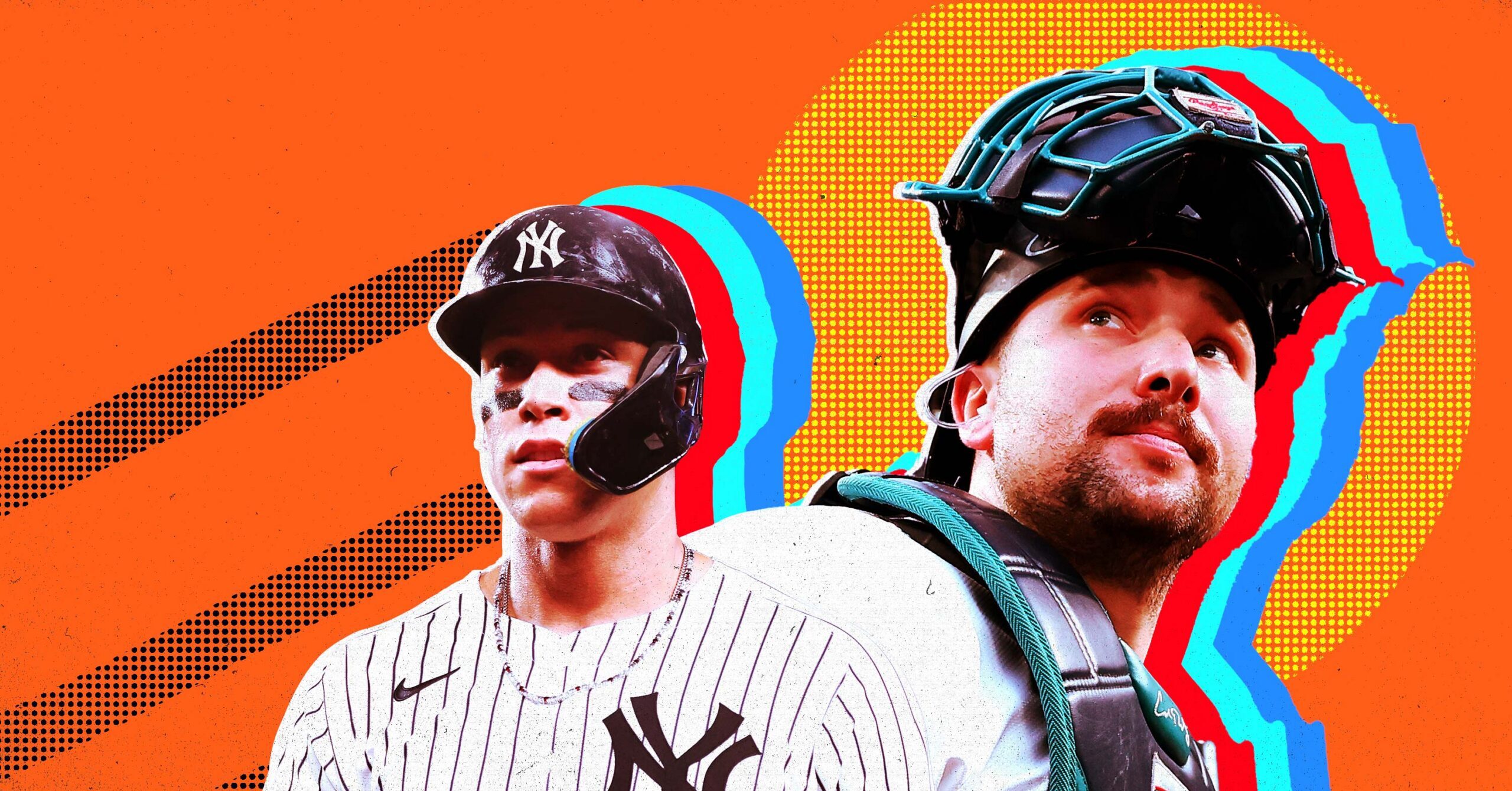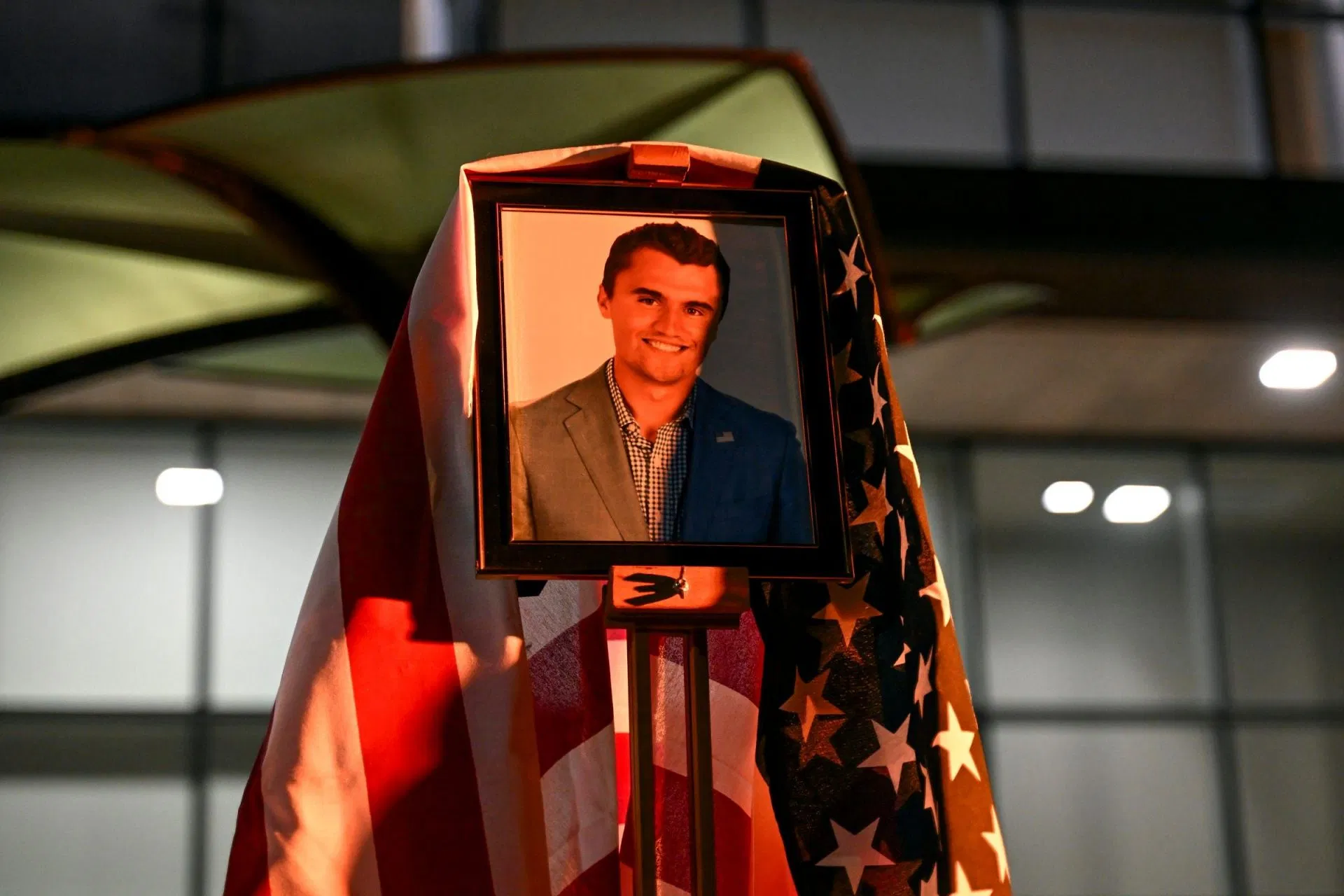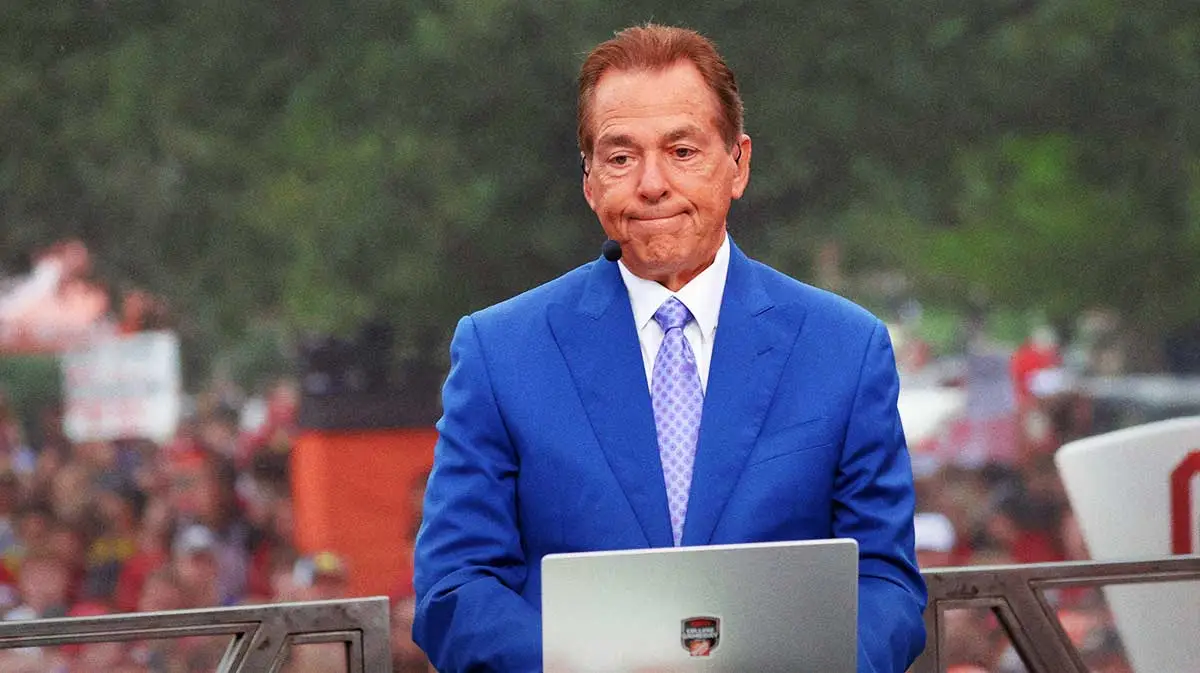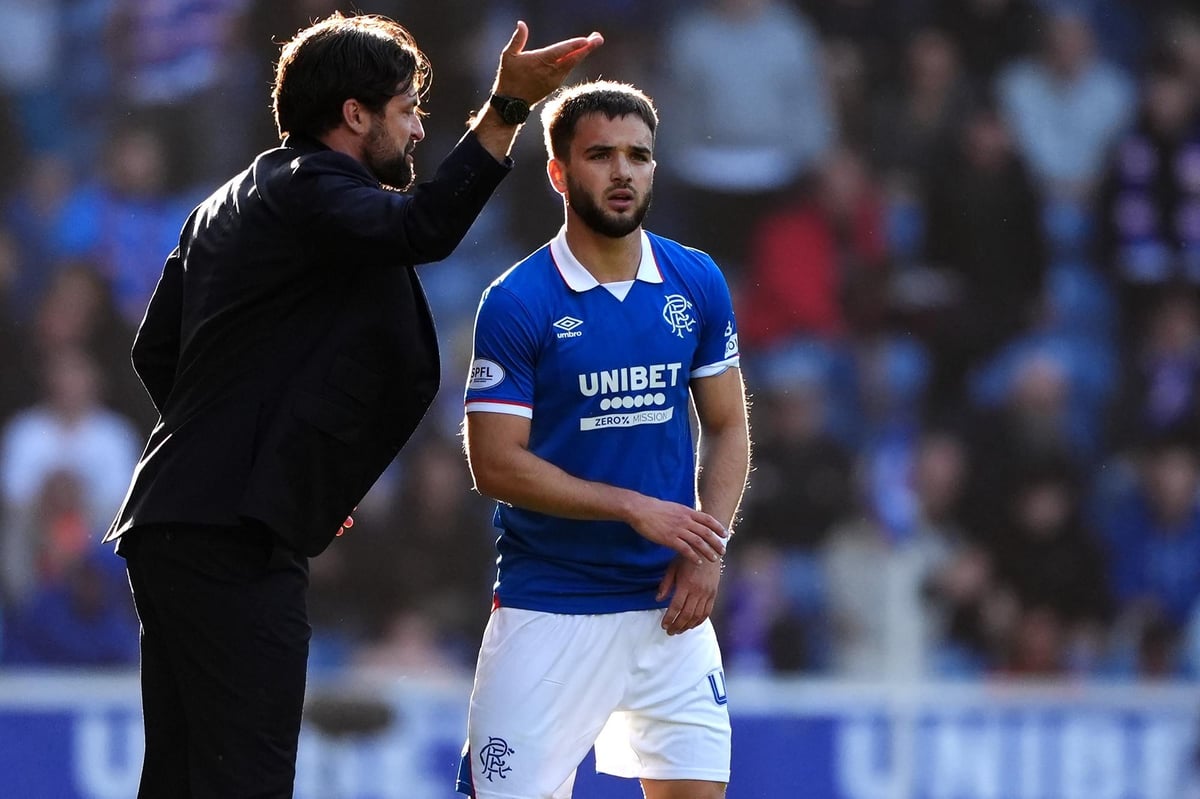
On Sunday, the irregular regular seasons of Aaron Judge and Cal Raleigh came to uncharacteristically quiet ends. Judge went 1-for-4 with a single as the Yankees yielded the AL East to Toronto and settled for the first wild card and a short series this week with the Red Sox. Raleigh, whose Mariners had already clinched the AL West and a first-round bye, went 1-for-3 with a walk and a single as Seattle’s DH. Judge didn’t add to his FanGraphs WAR total. Raleigh tacked on a tenth of a win.
If the BBWAA voters tasked with anointing an American League MVP were hoping for a final, emphatic outburst by one of the contenders—some sign about which slugger to select—they didn’t get it. Nonetheless, verdicts must be rendered: Ballots are due before the postseason starts on Tuesday. We’ll find out which way the writers leaned in November, weeks after Judge and Raleigh have either chased their regular-season success with October heroics or struggled on that stage. Regardless, in one respect, Raleigh has already won. Seattle’s 60-homer-hitting backstop may not claim the award, and arguably he doesn’t deserve to. But he had the more memorable, sensational season. Even if he wasn’t the most valuable player, he was the noteworthiest one. On an individual level, 2025 (like 1995) was the year of Cal.
As a long list of head-scratching past selections prove, MVP voting doesn’t determine who was more valuable. It reveals only who the baseball writers thought was more valuable. Not even all of the baseball writers—just the 30 who vote for each award. Relegating each trophy to a small subset of voters helps guard against regional bias—a relevant factor this year, considering the relative sizes of the Seattle and New York BBWAA chapters—but also injects a lot of luck of the draw. It’s possible that the outcome of this race won’t hinge solely on the two players’ performances but also on which writers happened to have a vote That’s particularly true because this year’s results are likely to be closer than they were last year, when Judge (and NL winner Shohei Ohtani) won unanimously. (Then again, a close race can still produce a landslide, if enough voters agree that one guy was a bit better.)
As I noted at the end of the 2022 race between Judge and Ohtani, those 30 voters are the only people in the world who have to weigh in on who had the superior season. The rest of us are at liberty to marvel at how valuable—and, perhaps more importantly, from a spectator perspective—how awe-inspiring each one was, without choosing sides.
It’s not as if either player is, in the abstract, an undeserving MVP. Judge once again hit better than any other player has since Barry Bonds—laying claim to one of the loftiest peaks by a right-handed hitter—while playing a plus right field over the 95 of his 151 starts in which he didn’t DH. Offensively, the 33-year-old led the league in virtually every category, batting .331/.467/.688 with 53 home runs. Raleigh batted .247/.359/.589 with 60 (!) homers, while ranking third in innings caught and third (per FanGraphs) or fifth (per Baseball Savant) in framing runs. He wasn’t charged with a passed ball, although he was behind the plate for 39 wild pitches.
Of course, sports arguments are mostly harmless, and often fun. And it can, in fact, be fun to argue in favor of Judge or Raleigh, as long as the goal is lifting one up more than it is trying to tear the other down. There may not be a ground-truth answer about which sports superhero’s season was better, but the lack of definitive answers hasn’t stopped people from arguing about whether Thor is more powerful than the Hulk.
On a purely statistical level, it’s tough to find any overall-value metric that favors Raleigh. Judge leads Raleigh by 2.4 WAR at Baseball-Reference and by 1.0 at FanGraphs The difference between the two is almost entirely attributable to framing, which Baseball-Reference doesn’t count. Framing should count—it has value—but even so, that one-win deficit forces Raleigh supporters to point out that a difference of one win is within fWAR’s margin of error and thus isn’t conclusive, or to assert that WAR isn’t currently capturing some of Raleigh’s catching contributions (such as game calling or other aspects of the pitcher-catcher relationship).
It’s tempting to try to bridge that one-win divide using context-sensitive tiebreakers. But there’s not enough of a difference in clutchness to be an obvious equalizer for Raleigh, and both stars and clubhouse leaders—Judge is the Yankees’ captain; Raleigh is the Mariners’ de facto captain—helped take their teams to October. Replace either one with an average player, and his club might well have seen its season end on Sunday. But neither was indisputably more indispensable to his club’s fortunes than the other.
It is almost indisputable that Raleigh has captured more imaginations.
That’s not a knock on Judge, who is, at worst, the second-best player in baseball. Ohtani, who’s about to win his fourth MVP award in five years (plus a runner-up finish behind Judge), has put up 44.4 fWAR over the past five seasons, and he’s still barely edged out Judge’s 42.8. But in terms of excitement and perhaps MVP voting, Judge may be a victim of his own past success. His 10-win season was, incredibly, the third best of his career, ranking third behind 2024 and 2022 in both versions of WAR, plus playing time, wRC+, and home runs.
Judge’s slight dip this year (to a ridiculously elite level) could be chalked up to a flexor strain in his right elbow, which sent him to the IL in late July, limited him to DH for a month after his return in early August, and may have hampered his hitting and his throwing upon his return to right field. He was still amazing, on the whole—just a little less so. It’s hard to hype that up. What’s 53 dingers when you once slammed 62?
The only notable new accomplishment for Judge is his first career batting title, which—while impressive for a player who struck out more than 30 percent of the time in each of his first four seasons—doesn’t bolster his MVP case in 2025 the way it would have in 1985. Judge’s highest batting-average years, 2024 and 2025, haven’t coincided with his lowest swinging-strike rates. Instead, they’ve overlapped with the lowest called-strike rates of his career, as umpires have improved their pitch-calling accuracy leaguewide and, perhaps, adapted to Judge’s unusually large zone. The rates of called strikes on pitches Judge took in the shadow zone have fallen, and he went the whole season without suffering a called strike in the waste zone, a fate that befell him seven times in 2017.
Compare that ho-hum dominance with Cal’s newly headline-hogging feats. Raleigh finished second behind perennial pull hitter Isaac Paredes in percentage of batted balls pulled in the air. Paredes needs to yank balls down the line to produce power, but Raleigh has about 3 inches, 20 pounds, 6 miles per hour of bat speed, and 4 miles per hour of exit speed on the Astros’ Crawford Boxes specialist. When Raleigh lifts to his pull side, he can crush balls out of any park, and T-Mobile Park (which isn’t terribly deep down the lines) posed little problem as he elevated more often than ever.
Not only was Raleigh way better than he’d ever been before, but he also set some sexy season records: most home runs by a catcher (both in a season spent mostly at catcher and while actually catching), most home runs by a switch-hitter, most home runs by a Mariner. Meanwhile, Judge, uh, became the fourth player to have four 50-homer seasons, in a year when three other hitters topped his total. That’s good, I guess.
While it may be double counting to give Raleigh extra credit for catching and hitting, over and above what WAR already allots, the degree of difficulty of what he did boggles even the minds of other major league catchers. Sixty home runs was previously the province of hulking first basemen and corner outfielders (some of them infamous steroid users), so the combination of “60 homers” and “catcher” doesn’t quite compute. A good defensive catcher, to boot! A reigning Platinum Glover! Who, in addition to the figurative mileage he must have accrued by appearing in all but three games—DH days notwithstanding—played for the team that traveled the most actual miles! “Motion is lotion,” indeed.
Raleigh’s season has gotten some buzz for being the best ever by a catcher, which—given the position’s defensive demands—might be more impressive than posting the best season at any other position. Admittedly, Raleigh doesn’t have a clear-cut case: FanGraphs has him fourth among players who were primarily catchers, behind Buster Posey in 2012, Johnny Bench in 1972, and Mike Piazza in 1997. Backstops tend to wear down late in seasons, an axiom supported by a study in the 2018 edition of Ron Shandler’s Baseball Forecaster. And for the first time in his career, Raleigh followed that pattern, hitting worse after the All-Star break than he had before. But he hit so well early in the year that even when he “slumped,” he remained one of baseball’s best hitters.
Even the path Raleigh’s team took to the playoffs was more riveting than the Yankees’ journey. The Mariners, who’ve never won a pennant, came from behind to win the AL West for the first time since 2001, which helped banish the Astros from the playoffs for the first time since 2016. Although this sounds strange, they’re the AL playoff favorites. The Yankees, who’ve won 41 pennants, lost their early lead in the East and, unlike their NL New York counterparts, won a wild card, a downgrade from their division title last year. Oh, and Raleigh won the Home Run Derby to boot. And have I mentioned his nickname, which is now known to anyone and everyone who somehow hadn’t heard it until 2025? This year, everything came up Cal.
All of that said: Should how cool Cal’s season was have any bearing on whether he wins the award? Probably not. Although the MVP-voting instructions are purposely open-ended—the BBWAA website says, “It is up to the individual voter to decide who was the Most Valuable Player in each league to his team,” adding that “there is no clear-cut definition of what Most Valuable means”—there are five criteria listed, and “imaginations captured” isn’t one of them.
The thing is, whether Raleigh wins the MVP award doesn’t matter that much. (Especially in an era when voting generally agrees with WAR and MVP picks no longer really represent sabermetric referenda.) Give him the Sporting News Major League Player of the Year Award. Give him the Commissioner’s Historic Achievement Award. Or, in lieu of hardware, give him more of the love he’s earned, and received, all season long. There are many more Yankees fans than Mariners fans. (See MLB’s list of the bestselling jerseys this season: Judge trailed only Ohtani, whereas Raleigh ranked 20th.) But by late this season, online interest in Raleigh darn near exceeded interest in Judge, who seemed to be mentioned mostly in relation to Raleigh. That would have seemed far-fetched in 2024.
Last year, Royals shortstop Bobby Witt Jr. was, by WAR, both better than Raleigh was this year and closer to Judge last year. (And he propelled his team to the playoffs one year after a 106-loss season.) Yet “Witt vs. Judge” didn’t spark nearly as much discussion as “Raleigh vs. Judge,” probably because Witt’s all-around excellent campaign didn’t have a hook as irresistible as Raleigh’s homers. Witt settled for being the unanimous second-place pick, and he has a good chance to place a distant third this year.
On the merits, maybe Witt should have gotten more MVP love or Raleigh should get less. That the debate still rages reflects Raleigh’s salience this season: His bopping was the biggest story in the sport that was pegged to one player. Judge and Raleigh batted third and fourth in the AL All-Star starting lineup. They’ll finish first and second (or second and first) in MVP voting. Don’t fret too much about the order because nothing they did will be undone when we learn the ballot box’s contents.



